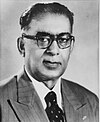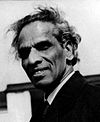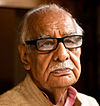
A Commonwealth realm is a sovereign state that has Charles III as its monarch and head of state. Charles succeeded his mother, Elizabeth II, as monarch of the Commonwealth realms immediately upon her death on 8 September 2022. All the realms are equal with and independent of the others, though one person, resident in the United Kingdom, acts as monarch of each.

A princely state was a nominally sovereign entity of the British Indian Empire that was not directly governed by the British, but rather by an Indian ruler under a form of indirect rule, subject to a subsidiary alliance and the suzerainty or paramountcy of the British crown.
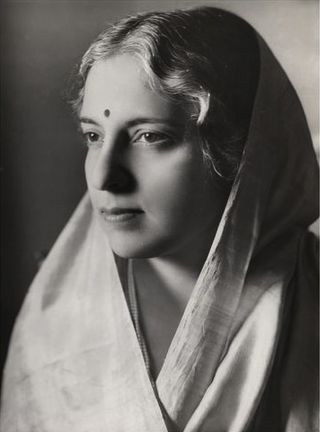
Vijaya Lakshmi Pandit was an Indian freedom fighter, diplomat and politician. She served as the 8th President of the United Nations General Assembly from 1953 to 1954, the first woman appointed to either post. She was also the 3rd Governor of Maharashtra from 1962 to 1964. Noted for her participation in the Indian independence movement, she was jailed several times during the movement.

The Indian Independence Act 1947 is an action of the Parliament of the United Kingdom that partitioned British India into the two new independent dominions of India and Pakistan. The Act received Royal Assent on 18 July 1947 and thus modern-day India and Pakistan, comprising west and east regions, came into being on 15 August.

The Constituent Assembly of India was elected to frame the Constitution of India. It was elected by the 'Provincial Assembly'. Following India's independence from the British rule in 1947, its members served as the nation's first Parliament as the 'Provisional Parliament of India'.

The territorial evolution of the British Empire is considered to have begun with the foundation of the English colonial empire in the late 16th century. Since then, many territories around the world have been under the control of the United Kingdom or its predecessor states. When the Kingdom of Great Britain was formed in 1707 by the union of the Kingdoms of Scotland and England, the latter country's colonial possessions passed to the new state. Similarly, when Great Britain was united with the Kingdom of Ireland in 1801 to form the United Kingdom, control over its colonial possessions passed to the latter state. Collectively, these territories are referred to as the British Empire. When much of Ireland gained independence in 1922 as the Irish Free State, the other territories of the empire remained under the control of the United Kingdom.
The Indian Civil Service (ICS), officially known as the Imperial Civil Service, was the higher civil service of the British Empire in India during British rule in the period between 1858 and 1947.

The Dominion of India, officially the Union of India, was an independent dominion in the British Commonwealth of Nations existing between 15 August 1947 and 26 January 1950. Until its independence, India had been ruled as an informal empire by the United Kingdom. The empire, also called the British Raj and sometimes the British Indian Empire, consisted of regions, collectively called British India, that were directly administered by the British government, and regions, called the princely states, that were ruled by Indian rulers under a system of paramountcy. The Dominion of India was formalised by the passage of the Indian Independence Act 1947, which also formalised an independent Dominion of Pakistan—comprising the regions of British India that are today Pakistan and Bangladesh. The Dominion of India remained "India" in common parlance but was geographically reduced. Under the Act, the British government relinquished all responsibility for administering its former territories. The government also revoked its treaty rights with the rulers of the princely states and advised them to join in a political union with India or Pakistan. Accordingly, the British monarch's regnal title, "Emperor of India," was abandoned.
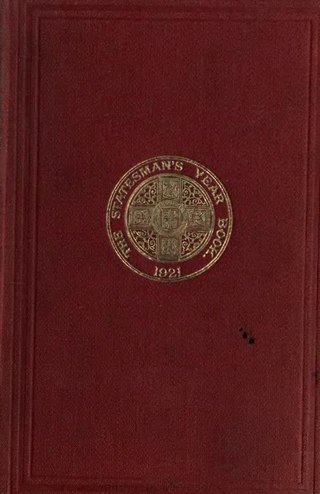
The Statesman's Yearbook is a one-volume reference book published annually since 1864 providing information on the countries of the world. It is published by Palgrave Macmillan.

General Jayanto Nath Chaudhuri, was a General Officer in the Indian Army. He served as the 6th Chief of Army Staff from 1962 to 1966 and the Military Governor of Hyderabad State from 1948 to 1949. After his retirement from the Indian Army, he served as the Indian High Commissioner to Canada from 19 July 1966 until August 1969.
In the Commonwealth of Nations, a high commissioner is the senior diplomat, generally ranking as an ambassador, in charge of the diplomatic mission of one Commonwealth government to another. Instead of an embassy, the diplomatic mission is generally called a high commission.

Pakistan–United Kingdom relations refer to the bilateral ties between the Islamic Republic of Pakistan and the United Kingdom of Great Britain and Northern Ireland. Both countries are members of the Commonwealth of Nations, and the United Kingdom is home to a large Pakistani diaspora population. Until 1956, Pakistan was nominally part of the British Empire as a post-independence federal Dominion in the aftermath of the partition of British India in 1947.
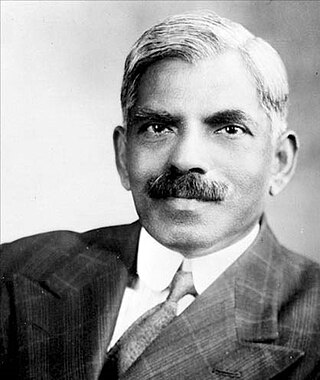
SirArcot Ramasamy Mudaliar was an Indian lawyer, diplomat, and statesman who was the first president of the United Nations Economic and Social Council and the 24th and last dewan of Mysore. He also served as a senior leader of the Justice Party and in various administrative and bureaucratic posts in pre- and Independent India.
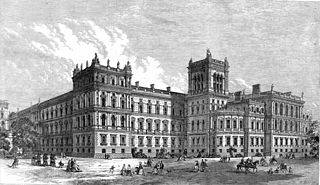
The Colonial Office was a government department of the Kingdom of Great Britain and later of the United Kingdom, first created in 1768 from the Southern Department to deal with colonial affairs in North America, until merged into the new Home Office in 1782.

India–United Kingdom relations, also known as Indian–British relations or Indo–British relations, are the international relations between India and the United Kingdom. India has a high commission in London and two consulates-general in Birmingham and Edinburgh. The United Kingdom has a high commission in New Delhi and six deputy high commissions in Mumbai, Ahmedabad, Chennai, Bangalore, Hyderabad and Kolkata. Both countries are full members of the Commonwealth of Nations.
A Dominion was any of several self-governing nations of the British Empire. With the evolution of the British Empire into the Commonwealth of Nations, the dominions became independent states.

From 1947 to 1956, the Dominion of Pakistan was a self-governing country within the Commonwealth of Nations that shared a monarch with the United Kingdom and the other Dominions of the Commonwealth. The monarch's constitutional roles in Pakistan were mostly delegated to a vice-regal representative, the governor-general of Pakistan.
Dewan Bahadur Sir Samuel Ebenezer Runganadhan was an Indian educationist who served successively as Vice-Chancellor of Annamalai University and Madras University and as the last High Commissioner for India from 1943 to 1947.
Shiv Shankar Mukherjee is an Indian civil servant and was the High Commissioner of India to the United Kingdom from 2008 to 2009.


